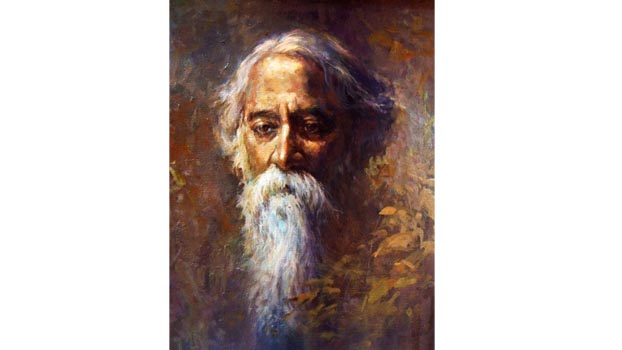78th Death Anniversary
Tagore – The versatile poet

Despite the fact that Rabindranath Tagore is one of the most celebrated and renowned poet, author, and lyricist, his prowess is more revered in the short story section of the Indian subcontinent. During his lifetime, Rabindranath Tagore wrote several poems, novels and short stories. Though he started writing at a very young age, his desire to produce more number of literary works only enhanced after the death of his wife and children.
In 1901, Tagore shifted to Santiniketan where he purposefully built an experimental school which came to be known as the Mandir. Even though it was built in the modern era classes were held under trees and followed the traditional guru-shishya style of education. This is where Tagore had lost his wife and children after which his life became full of distress.
But this acted like a positive catalyst for his writings. He started gaining much fame and became popular amongst the Bengali people and also among foreign readers. His recognition around the world kept on increasing and soon he was awarded the Nobel Prize in literature in 1913 and became the first Nobel Laureate in Asia.
One of the short stories that come to the mind right now is ‘Kabuliwala’. While “Kabuliwala” shows how time can test relationships, the story also shows the enduring strength of human emotions.
Critics argue—“The effect of time on relationships is best seen in the relationship between Mini and the Kabuliwala. When she was a child, both Tagore's daughter and the old Kabuliwala were the best of friends. They shared inside jokes, laughter, and a deep connection. Eight years passes between them as Rahmun is imprisoned. When he is released, he returns to see his friend. The little girl he once knew stands in front of him as a bride-to-be.”
Tagore details how time tests relationships when he writes how the Kabuliwala was unable “to revive their old friendship.” Whereas Mini laughed at his joke about visiting her “father-in-law” she no longer is able to do so. As he makes the same joke, Mini “now understood the meaning of the word 'father-in-law' and she could not reply to his as of old.” Tagore notes that time has altered their relationship: “I remembered the day when the Kabuliwallah and my Mini had first met, and I felt sad.” Tagore also mourns the altering of his own relationship with Mini. As a child, Mini would talk to Tagore incessantly, interrupting his writing with her constant stream of chatter.
As time has passed, Tagore notes that he and his daughter no longer speak to one another as they used to. When Tagore feels sad over what he sees with his daughter and the Kabuliwala, he is also mourning how time has altered his own relationship with Mini.
Time has a powerful effect on human relationships. However, Tagore suggests that this effect does not have to be entirely debilitating. Human beings can use the passing of time to establish new emotional connections in their relationships. Tagore notes that the Kabuliwala's connection his daughter motivated his friendship with Mini.
When Tagore gives him the money to go back to Afghanistan, it signals this chance for a new start. It is an instant where a new emotional connection can offset time's debilitating touch. It is for this reason that at the story's end Tagore is able to take solace that “in a distant land a long-lost father met again with his only child.”
Time is shown to have a deteriorating effect on relationships in “Kabuliwala.” It erodes the relationship that Rahmun has with his own daughter and with Mini. It also permanently alters the relationship that Tagore has with his child. On this level, it causes a sadness to see such human contact transformed through time.
However, Tagore also shows that human beings can positively respond to this reality. While time alters what we once had, through Kabuliwala's example, human beings are able to new relationships. As a result, human emotion can withstand the pressures of time's touch. Today on the death anniversary of the legendary penman we remember the immense knowledge of human emotions he shared with us. A toast of tea to the great maestro of short stories, poems, and novels while we still read his words and verses and will continue to do so far into the future.



